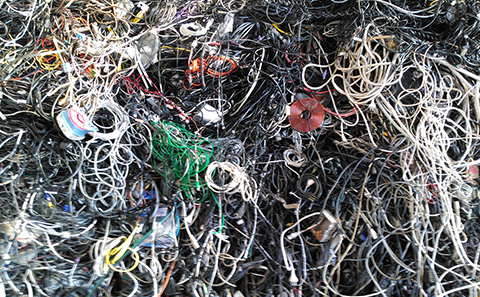Reuse or recycle your e-waste: Southampton expert explains how for international awareness day

Public awareness is needed to tackle the rapidly growing problem of electronics waste – and the outlook is stark if it’s ignored – according to an e-waste expert from the University of Southampton.
Saturday 14 October 2023 is International E-Waste Day and Ian Williams, Professor of Applied Environmental Science, has shared tips on what we can all do with our e-waste, such as old phones, devices, cables and chargers, as well as batteries, and electronic items such as kettles, toasters, lamps and televisions.
E-waste is the fastest growing solid waste stream in the world, with levels predicted to exceed 75 million tonnes by 2030. In the UK, we generate 1.5 million tonnes of e-waste every year.
Professor Williams said: “This colossal amount of electronics waste is largely due to how quickly we upgrade and replace items such as mobile phones and laptops. Many people don’t know how to dispose of these items responsibly. It’s vital we educate people on what to do with their e-waste to dispose of it safely and responsibly, before the situation becomes much worse.”
Research by the University of Southampton in 2021 found that 22 per cent of Southampton residents (from a sample of 650) would usually dispose of small electrical items in their dustbin. Additionally, 111 out of 258 survey respondents said ‘taking e-waste to a recycling centre is too much hassle/takes too much time’, whilst 138 said ‘I am confused by what I am supposed to do with e-waste’.
What should we do with our e-waste?
Reuse should be the priority for electronics waste. “Mobile phones and their associated cables are a prime example of items that are constantly being improved so we replace them quickly, but the old ones are still functional,” said Professor Williams.
He advises selling them via a UK retailer such as Cash Converters, or online – but doing this immediately and not storing them away as they will lose their reuse value. Alternatively, some retailers run a trade-in system for old products. Apple, for example, will trade old devices or cables for credit towards a new device. Or they can be taken to a charity shop for resale.
If reuse isn’t an option, electronic waste should be disposed of responsibly, and not in the dustbin.
“Chargers and cables consist of plastics, metals and other materials that don’t decompose naturally,” explained Professor Williams. “All cables contain copper, a valuable material, making them suitable for recycling. Many standard plastics can be recycled too.”
Most recycling centres accept common wires and cables.
Professor Williams added: “Raising awareness of the issue of electronics and electrical waste and how to address it is so important, which is what International E-Waste Day is all about.”
Visit the Recycle Your Electricals website for more information.